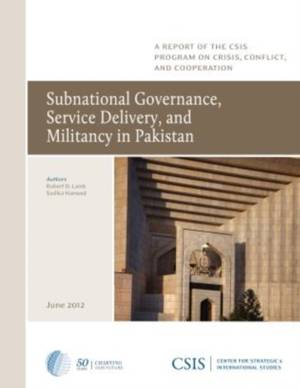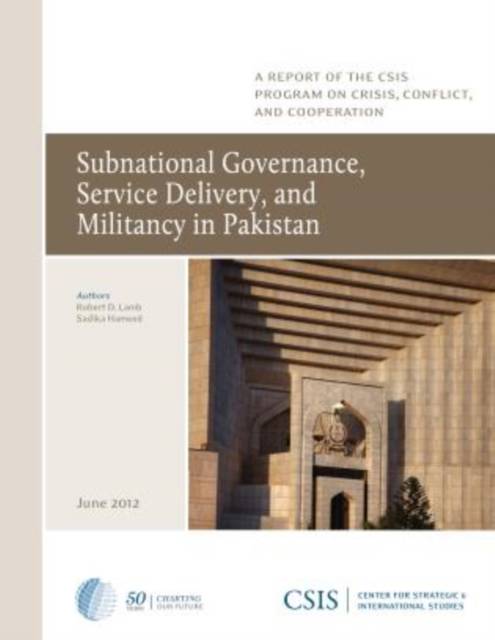
Bedankt voor het vertrouwen het afgelopen jaar! Om jou te bedanken bieden we GRATIS verzending (in België) aan op alles gedurende de hele maand januari.
- Afhalen na 1 uur in een winkel met voorraad
- Gratis thuislevering in België vanaf € 30
- Ruim aanbod met 7 miljoen producten
Bedankt voor het vertrouwen het afgelopen jaar! Om jou te bedanken bieden we GRATIS verzending (in België) aan op alles gedurende de hele maand januari.
- Afhalen na 1 uur in een winkel met voorraad
- Gratis thuislevering in België vanaf € 30
- Ruim aanbod met 7 miljoen producten
Zoeken
€ 47,95
+ 95 punten
Omschrijving
This report presents the results of a study on whether a link exists between the rise of militants and the quality of subnational governance in Pakistan and, if one exists, what the United States can do about it, if anything. Its basic finding is that Pakistan's governance problems are not caused by militancy, and its problems with militancy are not directly caused by its governance problems, but improving governance will be necessary (though not sufficient) to counter militancy. Pakistan's governance problems are not insurmountable, and recent trends offer reason for hope: the military's prestige has declined, the civilian government is likely to complete its full term, the judiciary is increasingly independent, civil society is increasingly confident even in the face of militant intimidation, and recent reforms--the Local Governance Ordinance of 2001 and the Eighteenth Amendment to the constitution--have put in place a set of institutions and incentives likely to contribute to improvements in the future. The United States has little influence over Pakistan's domestic politics and policies, but can help to reinforce these positive trends by working to empower Pakistan's reformers, moderates, and democrats (who prefer that public policies be developed and implemented through peaceful or democratic means) and to marginalize Pakistan's hardliners and extremists (who encourage the use of violence or proxy armies).
Specificaties
Betrokkenen
- Auteur(s):
- Uitgeverij:
Inhoud
- Aantal bladzijden:
- 64
- Taal:
- Engels
- Reeks:
Eigenschappen
- Productcode (EAN):
- 9780892067169
- Verschijningsdatum:
- 11/06/2012
- Uitvoering:
- Paperback
- Formaat:
- Trade paperback (VS)
- Afmetingen:
- 216 mm x 279 mm

Alleen bij Standaard Boekhandel
+ 95 punten op je klantenkaart van Standaard Boekhandel
Beoordelingen
We publiceren alleen reviews die voldoen aan de voorwaarden voor reviews. Bekijk onze voorwaarden voor reviews.









